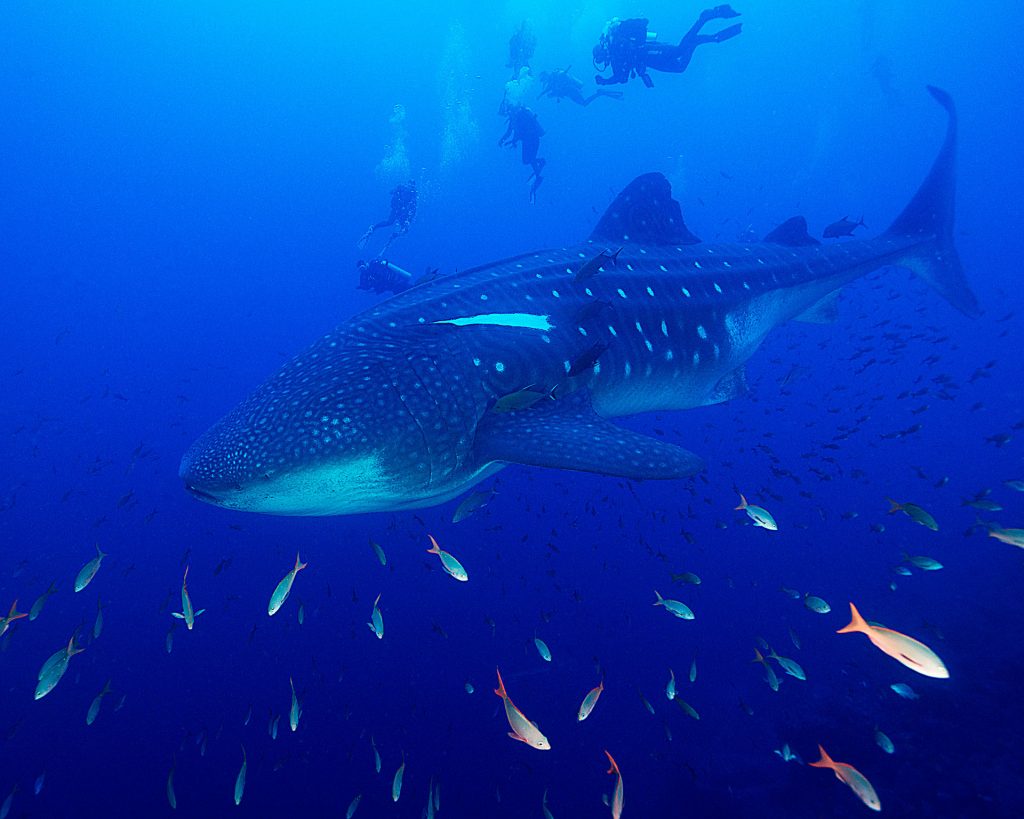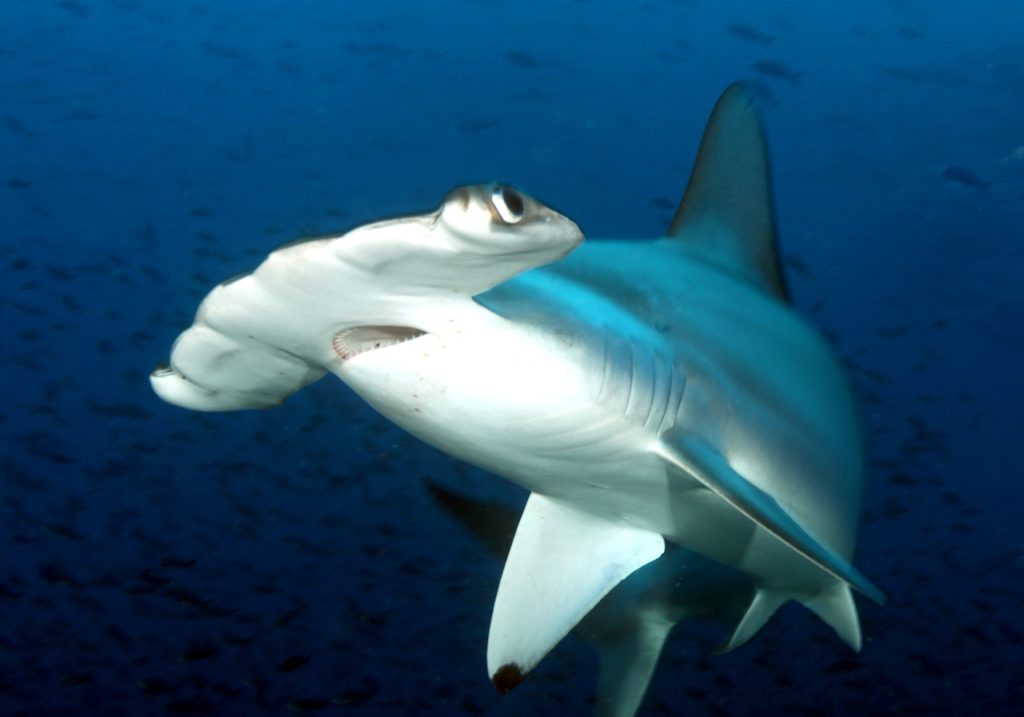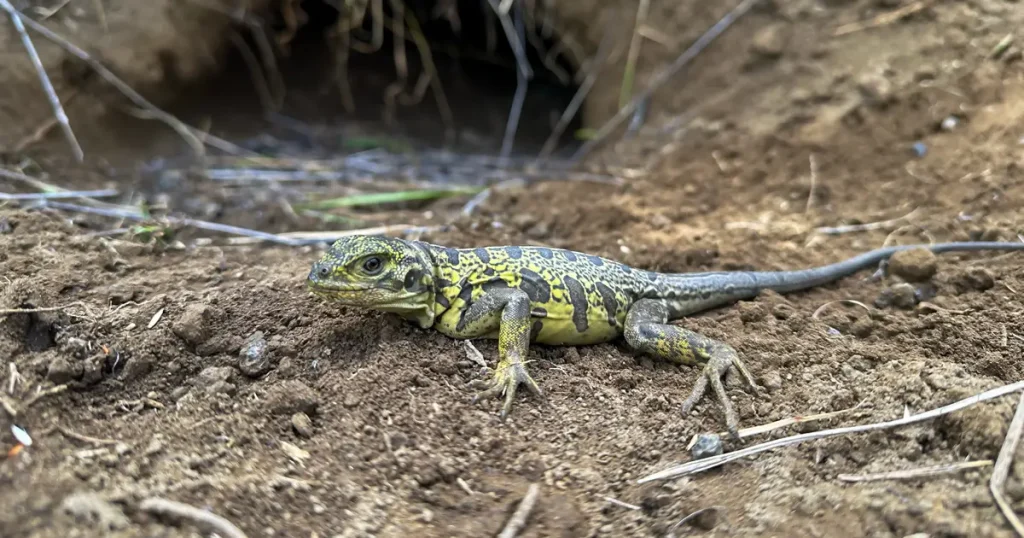Shark Awareness Day: Protecting the Guardians of Our Oceans
Date: 7/14/2023

Sharks emerge as the undisputed masters of the oceans, which harbor immense biodiversity and an interdependent web of marine life. However, with their survival under threat, July 14 was established as Shark Awareness Day, a day dedicated to spotlighting the importance of sharks to our oceans and fighting for their protection.
Dr. Jorge Carrión, our Director of Conservation, highlighted the importance of shark conservation in ensuring the natural regulation of oceans. “Sharks are top predators and play a critical role in controlling fish populations and other marine species,” he explained. “Their existence helps to preserve ocean health by balancing food chains.” However, these magnificent creatures face several challenges, including habitat loss, indiscriminate fishing for the Asian shark fin trade, and global threats such as climate change. As a result, robust shark protection measures are needed to safeguard the health of our waters.
Galápagos Conservancy funds studies to better understand shark behavior, migration patterns, and habitat use for feeding and reproduction in the Galápagos Islands. With this information, we can promote effective conservation policies and coordinate closely with the Galápagos National Park Directorate (GNPD) to safeguard these incredible marine predators. We work together to protect their habitat and promote peaceful coexistence between humans and sharks, ensuring a healthy future for these iconic creatures.
At least 35 intriguing shark species can be found within the Galápagos Marine Reserve (GMR), some of which are endemic and/or frequent visitors to the archipelago. These species include the imposing Hammerhead shark, the iconic Galápagos shark, the majestic Tiger shark, the elegant Blacktip shark, the mesmerizing Whitetip shark, and the massive Whale shark. Such a diverse range of sharks in the Galápagos waters attests to this unique environment’s ecological significance and the need to conserve it.
Sharks play a crucial role in the marine ecosystem and the local economy of the Galápagos Archipelago. Marine tourism, which contributes significantly to the region’s economy, depends greatly on shark sightings. Visitors worldwide come to view and swim with these magnificent aquatic creatures in their natural habitat. Their presence enhances the visitor experience and provides residents with jobs and income, amplifying the importance of protecting sharks and their habitats.
The Blacktip Reef Shark is a coastal species that is common in shallow water on and near coral reefs, where it occurs from the surface to depths of at least 246 feet. ©Greg Asner
Galápagos Conservancy hopes to encourage constructive change by raising awareness about the importance of sharks on Shark Awareness Day. We promote environmental education and collaborate closely with the GNPD and local communities to promote human-shark coexistence. Furthermore, we work for policies and regulations that successfully safeguard and support the long-term conservation of these cartilaginous fish, classified as giant marine predators.
As part of our commitment to marine conservation, Galápagos Conservancy works to protect the sharks of Galápagos and their habitats, including supporting studies and research to maintain the GMR’s health and beauty. The history of Galápagos sharks is one of resilience and hope, showing that we can make a difference when we band together to conserve our priceless marine life. On Shark Awareness Day, we must remember we are intrinsically connected to our oceans and their marine life — protection of sharks is essential for their survival and to keep our marine ecosystems healthy and balanced.

Protegiendo a los Guardianes del Océano: Día Internacional de la Conciencia por los Tiburones
En el mundo de los océanos que alberga una rica biodiversidad y una red interconectada de vida, los tiburones emergen como los maestros indiscutibles del mar. Sin embargo, su supervivencia está amenazada y es por ello que el 14 de julio se celebra el Día Internacional de la Conciencia por los Tiburones, una jornada dedicada a resaltar su importancia para los océanos y para abogar por su protección.
Nuestro director de conservación, el Dr. Jorge Carrión, enfatiza la importancia de proteger a los tiburones para asegurar la regulación ecológica de los océanos. Señala que “los tiburones son depredadores tope y desempeñan un papel crucial en el control de las poblaciones de peces y otras especies marinas. Su presencia equilibra las cadenas alimenticias, contribuyendo a mantener la salud de los océanos”. Sin embargo, estos magníficos animales enfrentan múltiples amenazas, como la degradación de hábitats, pesca ilegal e indiscriminada para la comercialización de sus aletas en el mercado asiático y además amenazas globales como el cambio climático. Por lo tanto, es imperativo tomar medidas efectivas para proteger a los tiburones como una medida para garantizar la salud de nuestros océanos.
Desde Galápagos Conservancy financiamos investigaciones para comprender mejor su comportamiento, patrones migratorios y uso de hábitats para alimentación y reproducción en Galápagos. Con esta información, se impulsa la implementación de estrategias de conservación efectivas y se establece una estrecha colaboración con la Dirección del Parque Nacional Galápagos (DPNG) para contribuir a la protección de estos asombrosos depredadores marinos. Juntos, trabajamos para conservar su hábitat y fomentar la coexistencia armoniosa entre los seres humanos y los tiburones, en busca de asegurar un futuro sostenible para estas especies icónicas.
Dentro de la Reserva Marina de Galápagos (RMG), se pueden encontrar al menos 35 fascinantes especies de tiburones que son endémicos y/o visitantes regulares del archipiélago. Entre estas especies destacan el imponente tiburón martillo, el emblemático tiburón de Galápagos, el majestuoso tiburón tigre, el elegante tiburón de punta negra, el cautivador tiburón de punta blanca y el gigantesco tiburón ballena. La presencia de esta diversidad de tiburones en las aguas de Galápagos es un testimonio del valor ecológico y la importancia de conservar esta región única.
En el archipiélago de Galápagos, los tiburones desempeñan un papel crucial tanto en el ecosistema marino como en la economía local. La industria del turismo marino, que representa una parte significativa de la economía de la región, depende en gran medida de los avistamientos de tiburones. Estas majestuosas criaturas marinas atraen a visitantes de todo el mundo, que buscan la oportunidad de admirar y nadar junto a ellos en su hábitat natural. Su presencia no solo enriquece la experiencia de los turistas, sino que también genera empleo y sustento para la población local, destacando la necesidad de proteger a los tiburones y su hábitat.
En el marco del Día Internacional de la Conciencia por los Tiburones, Galápagos Conservancy no solo busca generar conciencia sobre la importancia de estos animales, sino también inspirar un cambio positivo. Buscamos fomentar la educación ambiental y trabajar en estrecha colaboración con la DPNG y las comunidades locales para promover una coexistencia armoniosa entre los seres humanos y los tiburones. Además, abogamos por políticas y regulaciones que protejan efectivamente a estos peces cartilaginosos caracterizados por ser grandes depredadores marinos y promuevan su conservación a largo plazo.
La labor de Galápagos Conservancy en la protección de los tiburones de Galápagos es una muestra concreta de nuestro compromiso con la conservación marina. A través del financiamiento de estudios e investigaciones, contribuimos a asegurar la buena salud y belleza de la RMG. La historia de los tiburones de Galápagos es una historia de resistencia y esperanza, una historia que demuestra que podemos marcar la diferencia cuando trabajamos juntos en pro de la protección de nuestra preciosa vida marina.
En el Día Internacional de la Conciencia por los Tiburones, es importante recordar que estamos intrínsecamente conectados con el océano y las especies que lo habitan. La protección de los tiburones es fundamental para su supervivencia y para mantener el equilibrio y la salud del ecosistema marino. Únete a nosotros en esta noble causa para asegurar que la historia de los tiburones sea una historia de resiliencia y éxito en el futuro.



